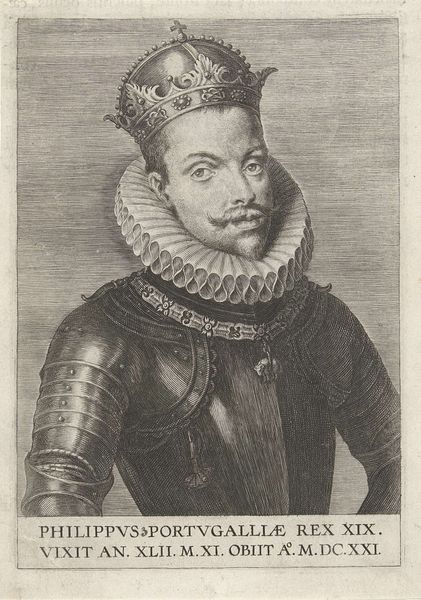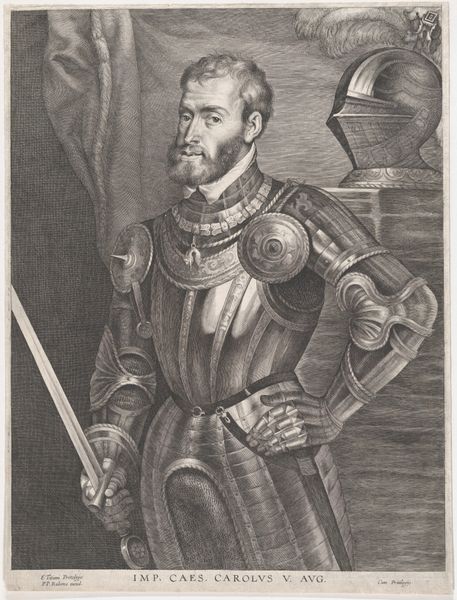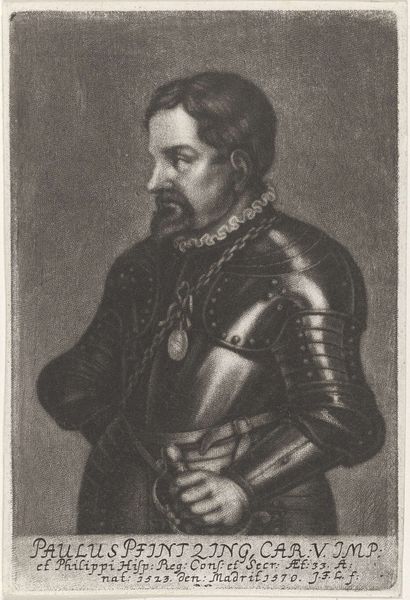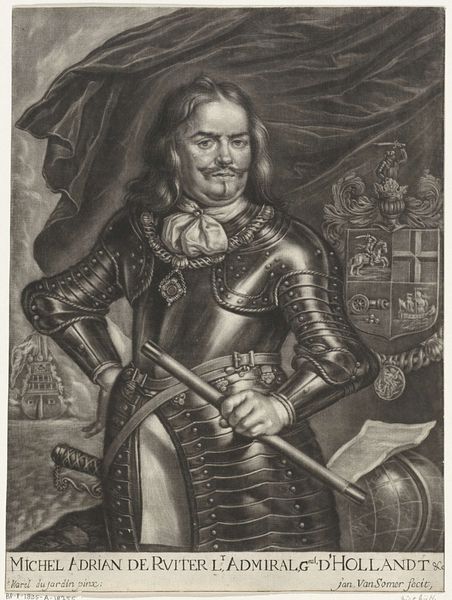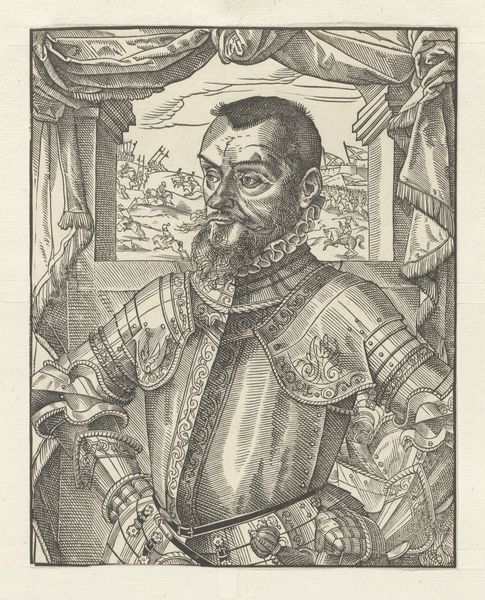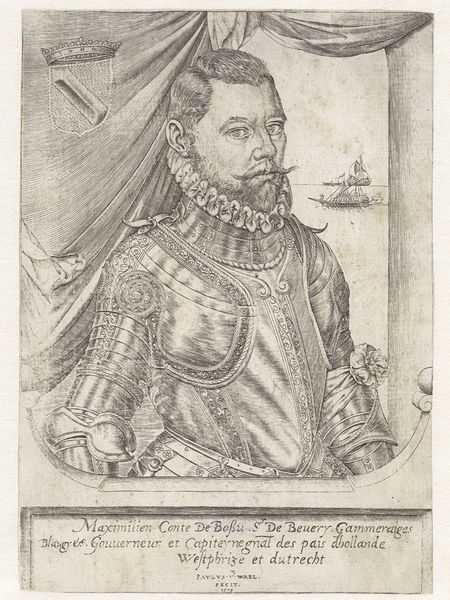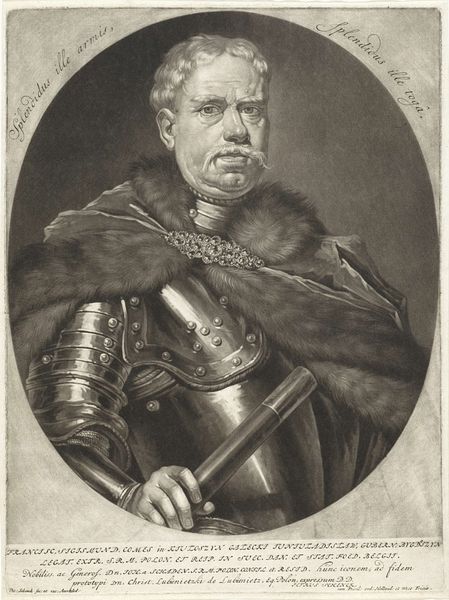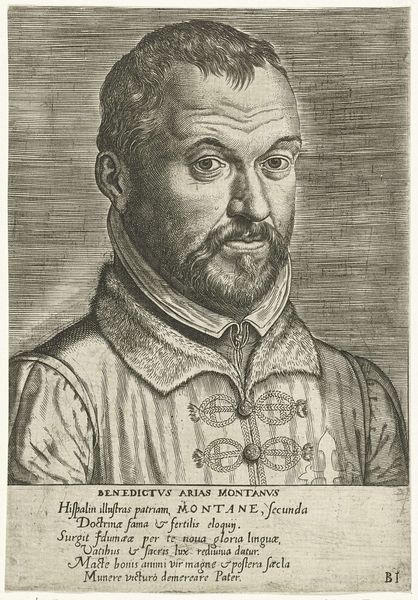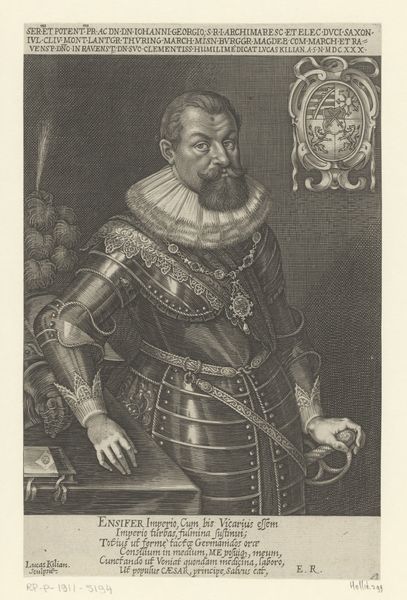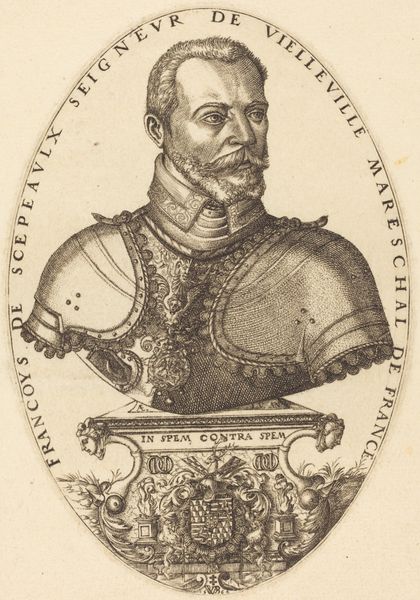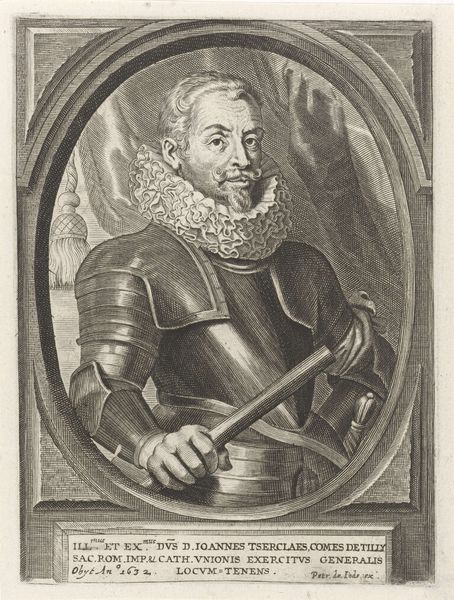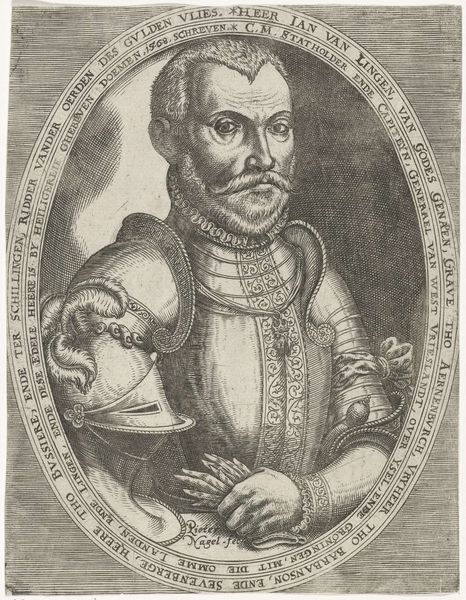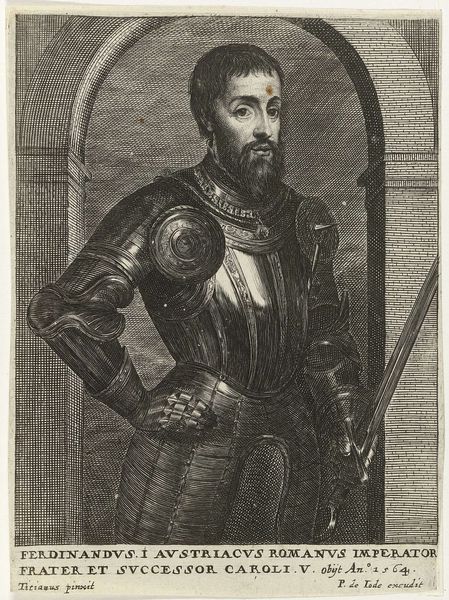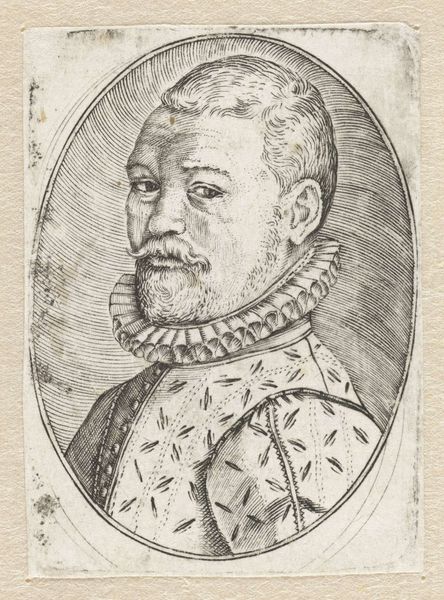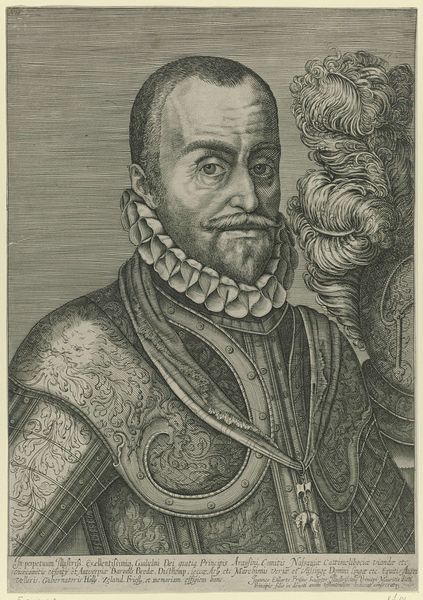
painting
#
portrait
#
figurative
#
venetian-painting
#
portrait
#
painting
#
portrait subject
#
figuration
#
portrait reference
#
portrait head and shoulder
#
portrait drawing
#
history-painting
#
facial portrait
#
italian-renaissance
#
portrait art
#
fine art portrait
#
celebrity portrait
#
digital portrait
Copyright: Public Domain: Artvee
Curator: Jacopo Tintoretto's "Portrait Of A Young Bearded Man" offers a compelling case study for examining identity in the context of 16th-century Venetian society. Editor: Stark, isn't it? That impenetrable armor set against the darkness evokes a very specific mood—a potent blend of power and isolation. Curator: Indeed. The armor isn’t merely decorative; it represents societal structures, perhaps the weight of familial expectations. We have to remember, sumptuary laws were tightening—what do we make of this display of aristocratic militarism? Editor: I’m drawn to the polished helmet he clutches. It is held as a trophy, while also hinting at vulnerability, the exposed face turned toward us as a subtle challenge. Helmets have symbolized protection and authority from antiquity. Curator: Consider the implications: this armor creates a boundary—it physically separates the man from potential threats, both tangible and ideological. Think about who this portrait might have been made for, its original social sphere... it seems strategic in the crafting of persona and legacy. Editor: And in terms of legacy, we can’t overlook how metal reflects. The way light catches on the ridges and curves mimics rippling water—an aquatic element of myth and reflection—suggesting that, like the sea, identity is constantly shaped by outside influence, despite attempts at rigidity. Curator: That brings me back to what the work *does*, socially. It is asserting dominance, wealth, and social standing at a specific moment, while the artistic talent creates a kind of allure, almost masking, softening, the implications of this social posturing. Editor: Looking closely at the gaze, I am caught on the precipice of something much more subjective, in spite of everything this man might *represent*. As the eye’s reflection becomes a stand-in for interiority, an opening appears, even through such formidable armor. Curator: Yes, those subtleties reveal the power dynamics within portraiture itself: both agency, and potential vulnerability to scrutiny and interpretation, then and now. Editor: Indeed—art as historical document, and, conversely, art as individual and transcendent act. Curator: And those layers create an important complexity that reveals historical insight on social dynamics and material culture.
Comments
No comments
Be the first to comment and join the conversation on the ultimate creative platform.
